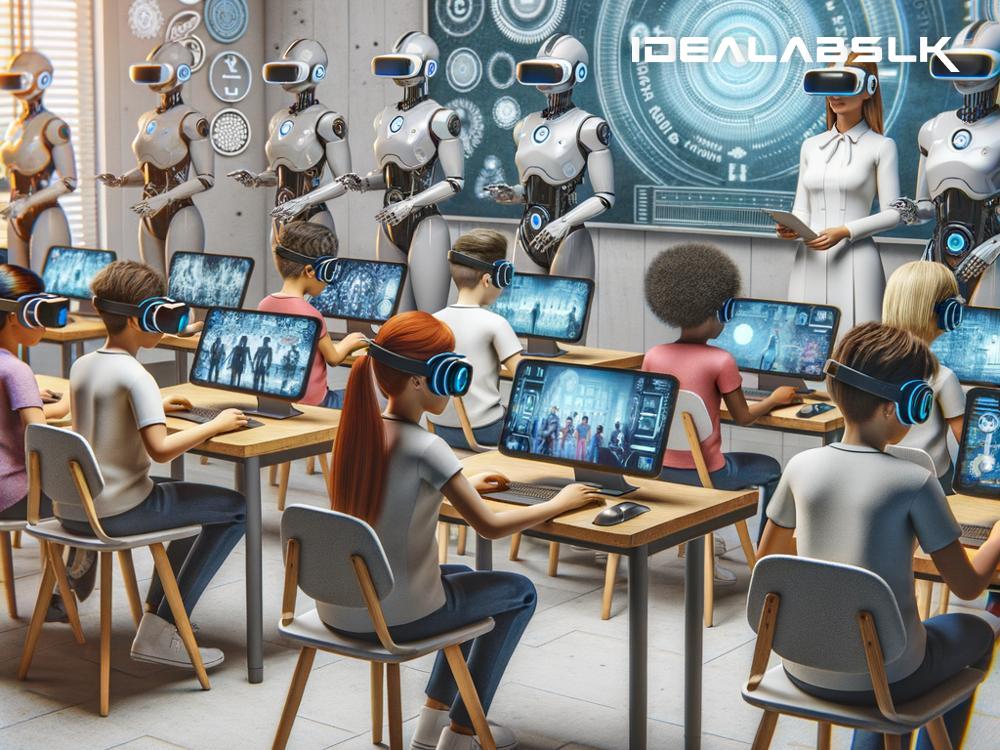How AI Will Shape Future Educational Curricula
Education has always been evolving. From the times of chalk and board to the digital classrooms of today, every change aims at making learning more effective and engaging. Now, Artificial Intelligence (AI) is on the brink of transforming how we learn in ways we might have only imagined in science fiction.
AI isn't just about robots or talking computers; it's a technology that can analyze, learn, and make decisions, influencing various sectors, including education. So, how will AI shape future educational curricula? Let's dive into the possibilities.
1. Personalized Learning Gets Real
Imagine a classroom where every student gets individual attention, with lessons tailored exactly to their learning pace, style, and interests. Sounds impossible, right? Not with AI. AI systems can analyze a student's performance in real-time, identifying strengths and weaknesses. This information can be used to create a personalized learning path for each student, ensuring no one is left behind or bored with lessons that are too easy.
2. Virtual Assistants for Everyone
Virtual assistants, powered by AI, could become the new face of learning, offering 24/7 assistance to students. Whether it's solving a math problem at midnight or getting help with a science project, these AI assistants will be there to guide students. They can answer questions, offer explanations, and even provide links to resources, making learning a continuous, accessible journey.
3. Making Learning Fun With Simulations and Games
Learning through doing is known to be more effective than traditional methods. AI can create realistic simulations and educational games that allow students to experiment and learn from trial and error. Imagine learning about the ecosystem by virtually diving into the ocean or understanding physics by constructing bridges in a simulated environment. These immersive experiences can make learning more engaging and enjoyable.
4. Smarter Assessments
Assessments are crucial in education, but the way they're done often leads to stress and isn't always an accurate measure of a student's capability. AI can change that. Instead of traditional tests, AI can evaluate a student's understanding through interactive activities, projects, and regular interactions, providing a more holistic view of the student's performance. Additionally, AI can give instant feedback, helping students learn from their mistakes right away.
5. Customized Curricula for Emerging Careers
The world is changing fast, and the jobs of the future will require skills that might not be in today's curricula. AI can help predict future trends and skills needed, allowing educational institutions to adapt their curricula in real-time to meet these emerging needs. This means students will be better prepared for the workforce of tomorrow, equipped with relevant skills and knowledge.
6. Bridging Language Barriers
Language should not be a barrier to learning, and AI can help ensure it's not. With real-time translation services and interactive language learning tools, students from different linguistic backgrounds can access educational content in their native languages. This not only makes education more inclusive but also opens up opportunities for cross-cultural learning experiences.
7. Revolutionizing Teacher Roles
With AI taking over certain aspects of teaching, like grading and providing personalized content, teachers can focus more on mentoring and guiding students. They'll have more time to address individual needs, inspire critical thinking, and foster a love for learning. The role of teachers will evolve from mere knowledge providers to facilitators of a student's educational journey.
Conclusion
The potential of AI in shaping future educational curricula is enormous and exciting. However, it's crucial to approach this transformation thoughtfully. While AI can offer personalized and engaging learning experiences, the human touch in education remains irreplaceable. Balancing technological advancements with the warmth and inspiration only a teacher can provide will be key to the future of education.
As we stand on the cusp of this educational revolution, it's an opportunity to envision a world of learning that's more accessible, engaging, and tailored to each learner. The future of education with AI isn't just about smart technology; it's about creating a smarter, more inclusive, and inspiring learning environment for all.

